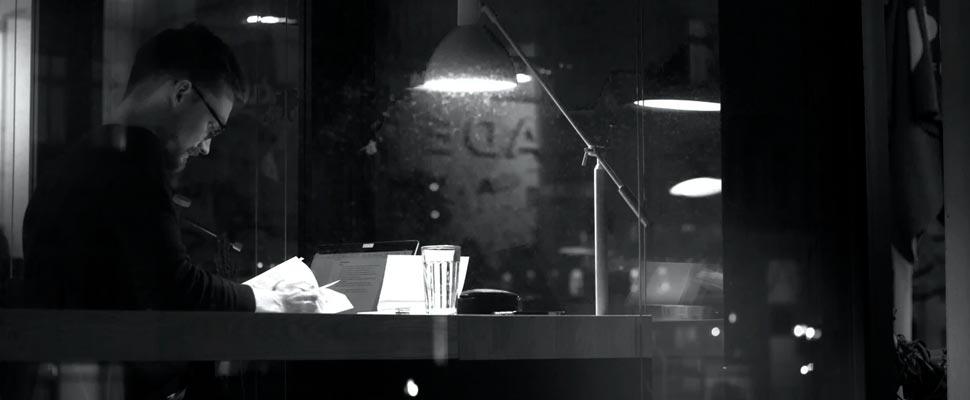Are we prepared to work at night?
The quarantine is changing the labor landscape, including the possibility of making hours more flexible. Is it convenient to work night hours? .

The flexibility of working hours opens the possibility of working at night. / Photo: Unsplash
LatinAmerican Post | Ariel Cipolla
Listen to this article
Leer en español: ¿Estamos preparados para trabajar de noche?
The coronavirus affected the entire work structure that we knew about. One of the most obvious changes arose from the possibility of doing our activities remotely, which implies certain changes. For example, it is not always necessary to adhere to schedules exactly, the routine can change and even many people are "in love" with this modality.
In this sense, the Cronista website highlights that 62.2% of people "are more productive at home than at the office", thanks to a study carried out by the employment portal Bumeran. Despite this, a third of those surveyed reveal that they feel that, under this modality, they work longer hours, since they end up delegating activities for other hours, such as at night.
Knowing that, according to what the specialized website for Teams and Talents proposes, 79% of companies could continue teleworking after COVID-19, it is convenient to know what happens during the different stages of the day. Specifically, we decided to investigate how the possibility of working night hours could affect us, a modality that, little by little, ends up being applied during quarantine.
Is it productive to work at night?
Despite the many advantages that the home office can bring, the reality is that some people seem not to know how to structure a routine from home. This is explained by the medium La Vanguardia, which highlights that teleworking "increases the working day by two hours", making workers have more flexible, but also longer, hours.
Although this new modality does not yet foresee these changes in schedules, for a long time night work was considered “different” from day work. For example, the Caracol website mentioned that the Colombian Senate had approved a bill to modify the time at which the night surcharge begins to be paid to workers, that is, that they earn more money for working from 9:00 p.m.
That is, there are some jobs that, in reality, always involved shifts during the night, although now what is happening is that some workers who had their days during the morning or afternoon decide to try to perform these tasks at those times. In other words, flexibility implies being able to "try" new spaces and ways of working, including schedule changes.
The examples are various. We can highlight a chronicle made by Misiones Online, which talks about police officers and how they should be available "every time a citizen needs help." In other words, these are essential services for society, so the Police cannot only be present during the day, but also at night.
The same happens with the doctors on call, especially in times of quarantine, who must comply with long working hours, including at night. The Infobae website had mentioned that "tension is a nutrient for the heart passionate about medicine", making people learn to sleep much less hours, which generally occur during the day, since they are in the hospital at night .
However, there are also some issues that alert the health of these workers. For example, a study carried out in the health field with more than 200,000 nurses, which was conducted by The National Library of Medicine, revealed that the possibility of rotating shifts and engaging in night work can increase the chances of contracting cancer in the medium term.
Also read: Brain drain: What is the future of Latino youth?
At the same time, it seems that having night work changes our "natural" sleep cycle , making the brain confused with what we are experiencing. According to the Xataka website, working at night involves interference with our circadian rhythms, affecting the synthesis of melatonin.
Although the current effect on workers remains to be verified, everything seems to indicate that the brain interprets that, as we sleep during the day, we do not need so many hours of sleep. Therefore, as the specialized environment of Imperial College London highlights, we are more susceptible to being tired and irritable, increasing our stress, causing poor performance in our responsibilities and atrophying our cognitive capacity.
Therefore, the flexibility in tasks and the appearance of new possible jobs implies the emergence of the “sleep economy”, as highlighted by the Rand website. We may not want to work that shift, but rather the ability to add new tasks and get more money.
This situation can lead us to change our work rhythm, adapting our brain to days with low light and making us more vulnerable to complaints. Against this background, it remains to be seen how new work activities are regulated, realizing how we function during the different cycles of life.




